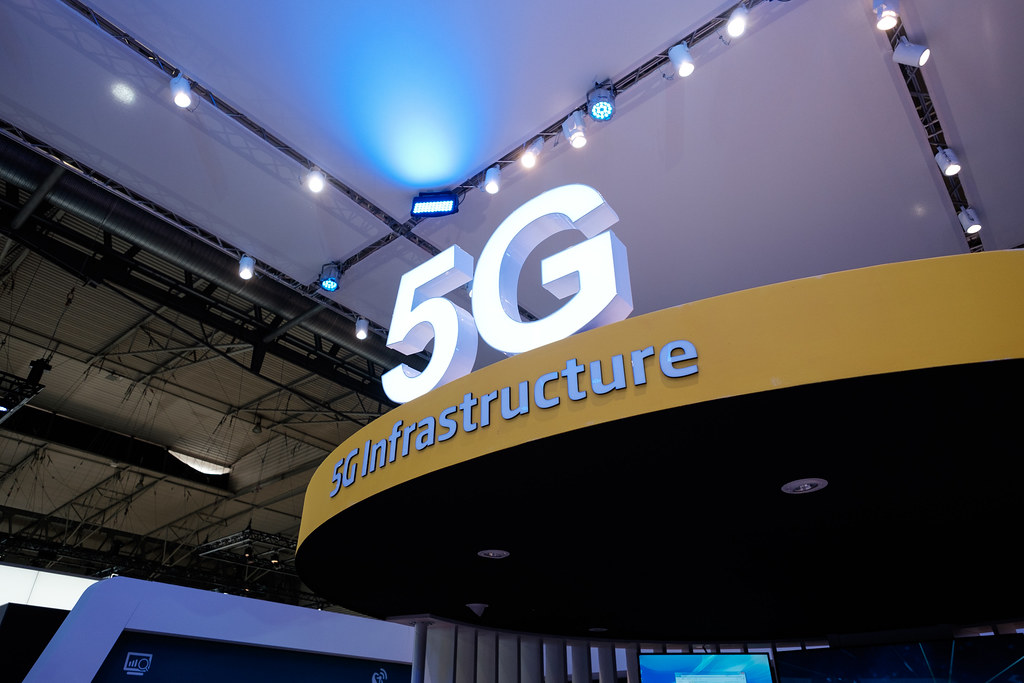5G technology is capable of providing download speeds of up to 20 Gbps. (200 times faster than 4G networks) and reduce data transmission delay to 1 ms (10 times less). It is not just about development of mobile communications, but about formation of a new approach to communication systems that integrate elements of IT infrastructure. This will allow more efficient use of existing resources, including existing broadband networks, and will help create new and improve old services and applications, the OECD notes.
As a general-purpose technology, 5G can accelerate economic growth and productivity by introducing new applications and services that operate at higher speeds and shorter waiting times, increasing the efficiency of companies using more advanced cloud solutions. In addition, new communication standards will help expand use of the Internet of Things, including applications that require special control and minimal data transfer delays (remote surgery using robots, autonomous transport, industrial robotics), as well as emergence of new forms of competition in the wireless and mobile market. However, realization of this potential will depend on the speed of deployment of 5G networks, as well as on the quality of adaptation of the regulatory and institutional framework to these changes, the OECD notes.
Authors of the report are quite cautious in their conclusions about economic advantages of the technology and do not attempt to assess the scale. At the same time, they refer to the data of the Australian government report (Australia adopted the national 5G development strategy in 2017), where by 2030 this impact is estimated at an additional 1.3–2 thousand Australian dollars to GDP per capita due to the growth of multi-factor productivity. This should happen, among other things, by reducing the monetary and time costs of households in smart cities and by indirectly influencing the progress of medical services on productivity.
According to Qualcomm, the full economic benefits of 5G can become visible by 2035, when technology transforms transport, healthcare, education and the industrial Internet of things.
The OECD added to this list energy, agriculture, industry, public safety, environmental protection, tourism and culture, stipulating that this list is also incomplete. So, a recent Moody's report deals with the impact of 5G technology on the insurance business: active introduction of the Internet of things in transport, in production and in everyday life will lead to a reduction in the number of accidents, which will cause a short-term increase in insurers' profits, and then force them to significantly reduce insurance premiums and rebuild business models. Also, the high cost of network deployment and technology features (the need to create many small base stations, micro-cells) will contribute to the development of collaboration between market participants, public-private partnerships, co-investments, and cooperation between countries (as in the case of creating 5G corridors) to develop autonomous transport in the EU).
At the same time, the deployment of 5G can become a serious regulatory challenge for all levels of power, forcing them to revise the mass of norms - from sanitary (electromagnetic radiation, technology implies an increase in network density when micro cells must be installed on literally every lamppost) to harmonize international communication frequency control . In addition, the sharing of infrastructure by operators (both physical and network) can change antitrust regulation.
source: oecd.org
As a general-purpose technology, 5G can accelerate economic growth and productivity by introducing new applications and services that operate at higher speeds and shorter waiting times, increasing the efficiency of companies using more advanced cloud solutions. In addition, new communication standards will help expand use of the Internet of Things, including applications that require special control and minimal data transfer delays (remote surgery using robots, autonomous transport, industrial robotics), as well as emergence of new forms of competition in the wireless and mobile market. However, realization of this potential will depend on the speed of deployment of 5G networks, as well as on the quality of adaptation of the regulatory and institutional framework to these changes, the OECD notes.
Authors of the report are quite cautious in their conclusions about economic advantages of the technology and do not attempt to assess the scale. At the same time, they refer to the data of the Australian government report (Australia adopted the national 5G development strategy in 2017), where by 2030 this impact is estimated at an additional 1.3–2 thousand Australian dollars to GDP per capita due to the growth of multi-factor productivity. This should happen, among other things, by reducing the monetary and time costs of households in smart cities and by indirectly influencing the progress of medical services on productivity.
According to Qualcomm, the full economic benefits of 5G can become visible by 2035, when technology transforms transport, healthcare, education and the industrial Internet of things.
The OECD added to this list energy, agriculture, industry, public safety, environmental protection, tourism and culture, stipulating that this list is also incomplete. So, a recent Moody's report deals with the impact of 5G technology on the insurance business: active introduction of the Internet of things in transport, in production and in everyday life will lead to a reduction in the number of accidents, which will cause a short-term increase in insurers' profits, and then force them to significantly reduce insurance premiums and rebuild business models. Also, the high cost of network deployment and technology features (the need to create many small base stations, micro-cells) will contribute to the development of collaboration between market participants, public-private partnerships, co-investments, and cooperation between countries (as in the case of creating 5G corridors) to develop autonomous transport in the EU).
At the same time, the deployment of 5G can become a serious regulatory challenge for all levels of power, forcing them to revise the mass of norms - from sanitary (electromagnetic radiation, technology implies an increase in network density when micro cells must be installed on literally every lamppost) to harmonize international communication frequency control . In addition, the sharing of infrastructure by operators (both physical and network) can change antitrust regulation.
source: oecd.org





